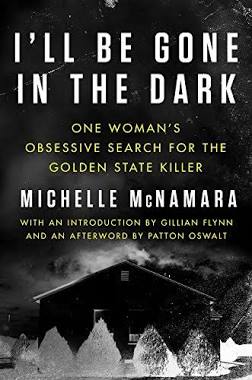*** Editing this post to say that I just did a 10 second Google search to see what the author has been up to recently, and it’s a bit of a total barf fest. I hope he stays true to wanting to help people though. I also now have an idea of why he was inserting so many figures and facts in there (see bottom paragraph), he was probably already planning a political run. Anyway – my experience with the book stands and damn if I’m going to delete it even though Vance turned into a giant 🍆
I found a copy of Hillbilly Elegy shortly after it came out, and it’s been sitting on my shelf ever since. I wasn’t too interested in how political people were making the book at first and I think that was a mistake since it seemed to me like an awesome story of someone who overcame poverty & trauma, family, and upward mobility.
The first thing I liked was how right in the introduction Vance frankly outlined what he was trying to do with the book, said what his own biases were, and put his own lens into perspective for the reader. He also explicitly states that he is focusing on a small geographical area, and while I get that he offended a lot of Appalachia with some of his portrayals he never claimed that the book speaks for everyone
Anyway, I’ll hit the good, bad, and odd below
Bookish Quick Facts:
- Title: Hillbilly Elegy
- Author: J.D. Vance
- Publisher & Release: Harper, June 2016
- Length: 272 pages
- Rate & Recommend: ⭐⭐⭐⭐ frankly yes, understanding that some things have changed since 2016
Here’s the synopsis via Am@zon:
Hillbilly Elegy is a passionate and personal analysis of a culture in crisis—that of white working-class Americans. The decline of this group, a demographic of our country that has been slowly disintegrating over forty years, has been reported on with growing frequency and alarm, but has never before been written about as searingly from the inside. J. D. Vance tells the true story of what a social, regional, and class decline feels like when you were born with it hung around your neck.
The Vance family story begins hopefully in postwar America. J. D.’s grandparents were “dirt poor and in love,” and moved north from Kentucky’s Appalachia region to Ohio in the hopes of escaping the dreadful poverty around them. They raised a middle-class family, and eventually their grandchild (the author) would graduate from Yale Law School, a conventional marker of their success in achieving generational upward mobility.
But as the family saga of Hillbilly Elegy plays out, we learn that this is only the short, superficial version. Vance’s grandparents, aunt, uncle, sister, and, most of all, his mother, struggled profoundly with the demands of their new middle-class life, and were never able to fully escape the legacy of abuse, alcoholism, poverty, and trauma so characteristic of their part of America. Vance piercingly shows how he himself still carries around the demons of their chaotic family history.
A deeply moving memoir with its share of humor and vividly colorful figures
I think Vance accomplished his goal and shared a story of a way of life that many Americans are not (while unfortunately many are) familiar with, although the political, social, economic landscapes have now changed during Covid.
What I took away was …
1} His family story, the biography. I loved how his great grandparents, grandparents, and parents all had to overcome generational poverty and trauma to find their own way. Some succeeded, some didn’t. His grandmother is absolutely fierce (but not without flaws) and I wanted even more MawMaw stories.
2} Regardless of class, region, economic status, race, a lot of us can relate to having to get past our parents’ choices and the situation we are born into. Vance dealt with parental domestic abuse, utter insanity, drug use, alcoholism, rotating men in the house, and never had a stable home life except at his grandparents. His mom actually was going to kill him once. His sister essentially kept them afloat. Let’s take a minute, applaud the sister Lindsay, and appreciate how hard this makes a kid’s prospects even without poverty involved
3) Can’t argue that America (post covid is another story, another universe, so much worse) relies heavily on welfare and government funding. I totally agree with Vance that at least part of the solution is targeting at risk youth with the social, emotional, and financial support that they need, plus the safety and sense of optimism to succeed. I can’t even begin to think of how to unclusterfuck America right now but I’d love to see how Vance feels about this now in 2022
4) I touched on it above but google the ACE score and see if you have experienced any of the acute childhood events? Do they affect you today? I think the real story is how Vance managed to overcome these generational traumas and functions like a successful human with a wife and family. He even helped his mother still, after everything
5) A lot of success is habitual, mental, and learned behaviors
The only thing I considered truly weird was that this is largely marketed as. Memoir, which is great. I loved the biographical elements. The thing is that Vance also threw in facts and data to push his narrative at times … which is great but makes it less memoir and anecdotal ish and more about the author being “right”. Just odd.
Overall – I would recommend book or audio equally, from the except Vance sounds like a decent narrator
Have you read it? What did you think??









